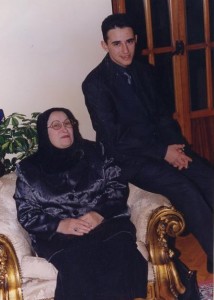By Amro Ali:
 In a bustling area of the 2,300 year-old Alexandria, Egypt, lies the middle class suburb of Cleopatra
In a bustling area of the 2,300 year-old Alexandria, Egypt, lies the middle class suburb of Cleopatra
Hammamat, meaning Cleopatra’s Baths, named after the legendary Cleopatra VII and where she once ruled. She was the last Queen Pharaoh who came to understand, albeit belatedly, that power can be vanquished at a heavy price; the rest is history. Today, overlooking the Mediterranean Sea, Cleopatra Hammamat is a beautiful, harmonious, and vibrant area – Muslim and Christian traders work side by side, men play their checkers in the coffee houses, soccer matches bring the streets to a standstill. And, despite the extremely difficult economic situation, Egyptians are still willing to express their renowned warm sense of humour at life’s challenges.
Cleopatra Hammamat (or Cleopatra for short) rarely made the headlines – until Sunday, June 6, when fate propelled it back onto the world map. Two plain-clothed policemen entered an internet cafe near the beach, seizing 28-year-old Khalid Saeed and smashing his head against a marble shelf, dragging him outside, and brutally beating and kicking him to the ground. Saeed pleaded for them to stop, but the police shoved him into a car in which he died en route to the Sidi Gaber police station. Afterwards, his lifeless body was brought back to the café and dumped. With Saeed’s death, a Pandora’s Box had been opened. Continue reading “Egypt’s Collision Course With History”
